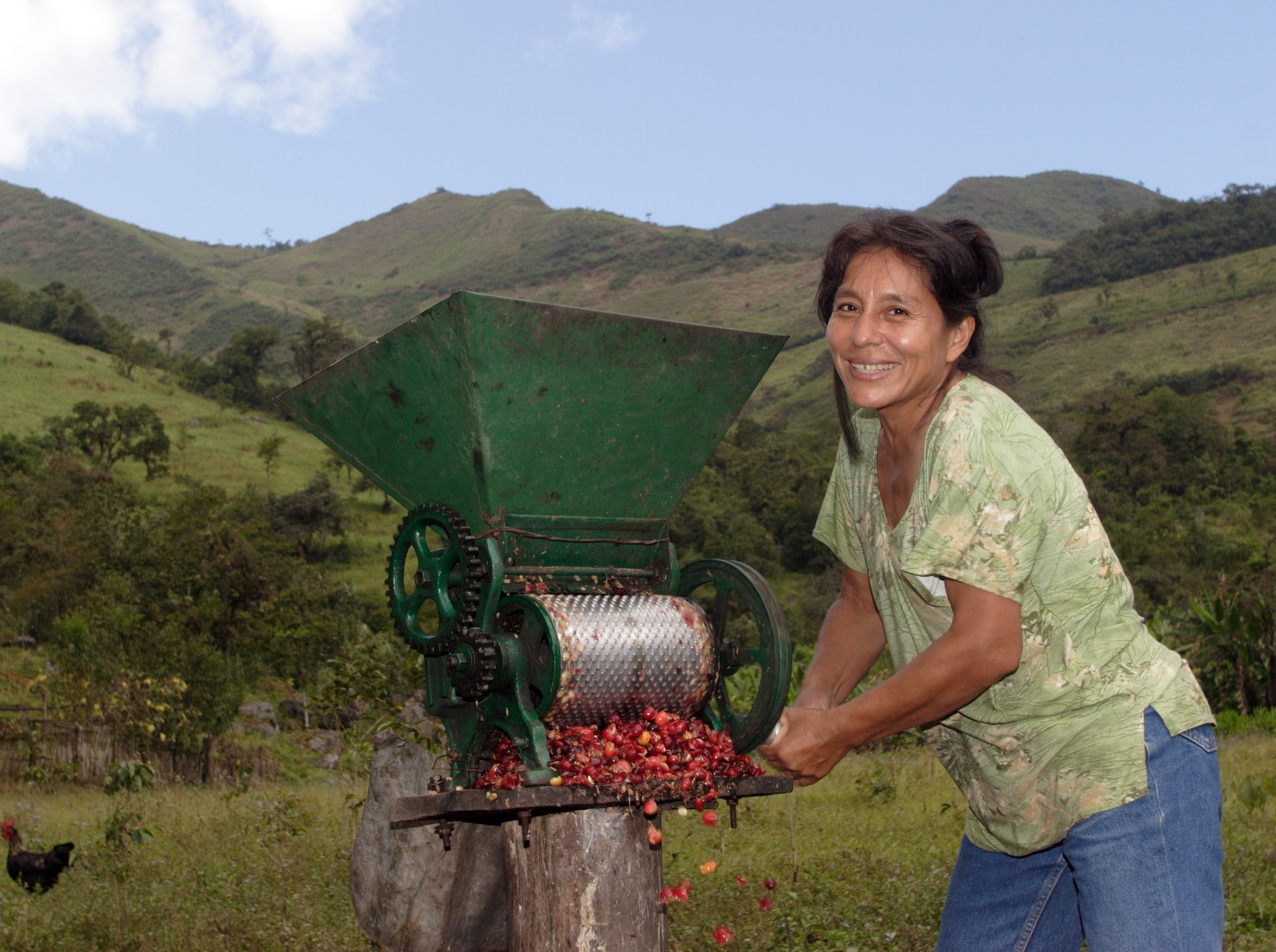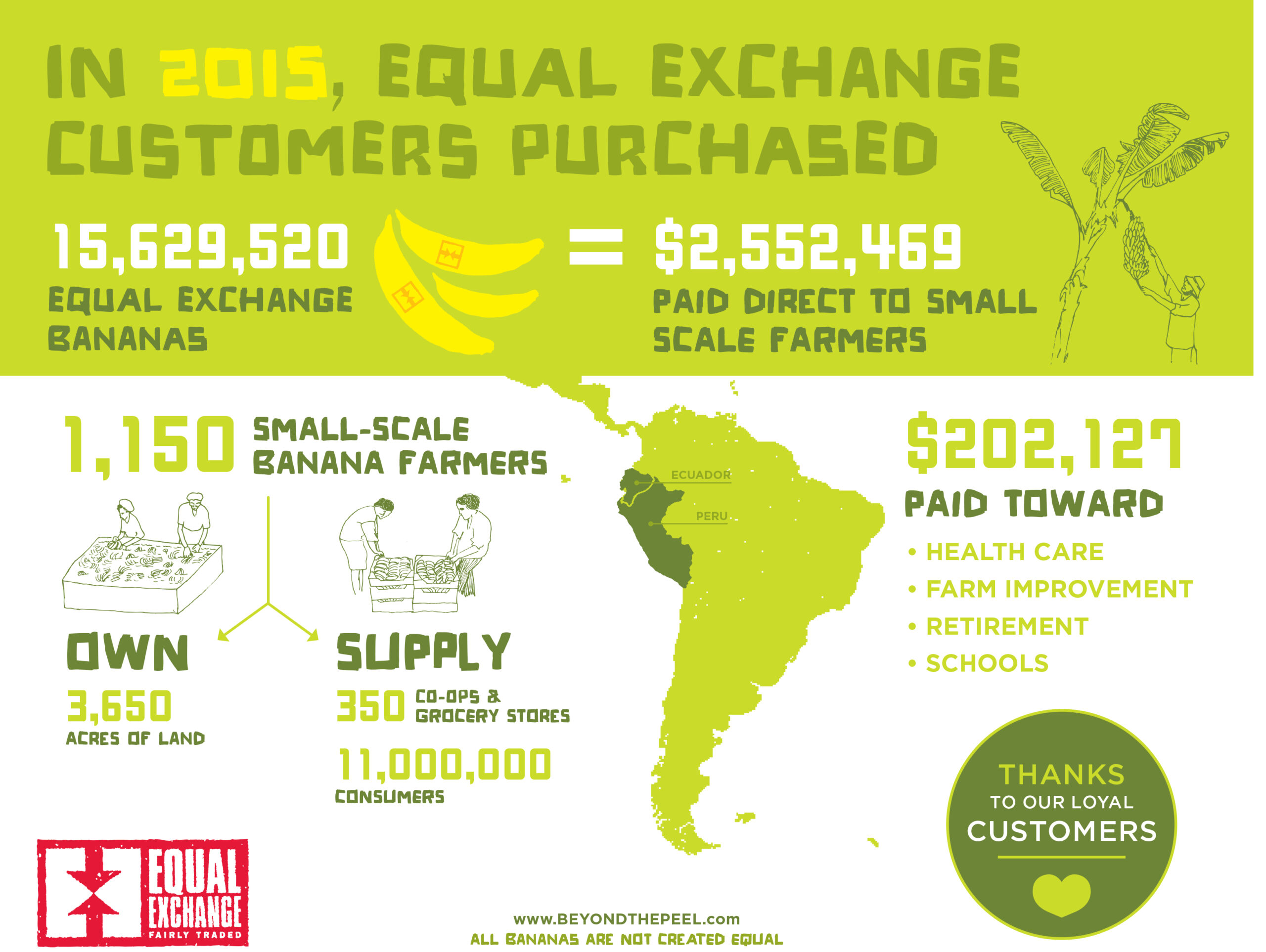
Spotlight on Equal Exchange Co-op
October is Fair Trade Month and Co-op Month, so it seemed like an ideal time to shine our Co-op spotlight on Equal Exchange. Their Co-op produced, Fair Trade Certified goods are all 20% off for member-owners this week! Although they are best known for their gourmet coffees, you can also find Equal Exchange chocolate, bananas, and avocados here at the Co-op! Read on to learn more about this democratic worker-owned cooperative headquartered in Bridgewater, Massachusetts.

The Equal Exchange cooperative was founded in 1986 to challenge the existing trade model, which favors large plantations, agri-business, and multi-national corporations; support small farmers; and connect consumers and producers through information, education, and the exchange of products in the marketplace. They joined a growing movement of small farmers, alternative traders (ATOs), religious organizations, and non-profits throughout the world with like-minded principles and objectives. Underlying their work is the belief that only through organization, can small farmers survive and thrive. The cooperative model has been essential for building this model of change.
Their mission is to build long-term trade partnerships that are economically just and environmentally sound, to foster mutually beneficial relationships between farmers and consumers and to demonstrate, through their success, the contribution of worker co-operatives and Fair Trade to a more equitable, democratic and sustainable world.

So, What Does Authentic Fair Trade Entail?
Here’s the scoop from the Equal Exchange website:
Fair Trade is a way of doing business that ultimately aims to keep small farmers an active part of the world marketplace, and aims to empower consumers to make purchases that support their values. Fair Trade is a set of business practices voluntarily adopted by the producers and buyers of agricultural commodities and hand-made crafts that are designed to advance many economic, social and environmental goals, including:
- Raising and stabilizing the incomes of small-scale farmers, farm workers, and artisans
- More equitably distributing the economic gains, opportunities and risks associated with the production and sale of these goods
- Increasing the organizational and commercial capacities of producer groups
- Supporting democratically owned and controlled producer organizations
- Promoting labor rights and the right of workers to organize
- Promoting safe and sustainable farming methods and working conditions
- Connecting consumers and producers
- Increasing consumer awareness and engagement with issues affecting producers
The Fair Trade practices that advance these goals typically, but not always, include:
- Direct trade relationships and long-term contracts between importers and producer groups
- Sourcing from small-farmer or artisan co-operatives
- Higher than conventional market prices, either through above-market premiums and/or price floors
- The provision of affordable credit
- Adherence to the policies of the International Labor Organization, especially those concerning child and forced labor and the right to collective bargaining
- The prohibition of the use of more dangerous pesticides and herbicides
- Substantial price premiums for the production of certified organic crops
- External monitoring, auditing, and certification of these practices by independent third-parties
What Impact is Fair Trade Having on Farmers & Their Communities?
Check out this 10-year impact report: 10yearsofimpact
And here’s a look at the impact of your Equal Exchange banana purchases in 2015:

Do you purchase Equal Exchange avocados? Check out the impact those purchases had for 2014-15: 2014-5avocadoimpact
Want to trace the path your banana takes from the farm to your kitchen table? Check out this cool video!
